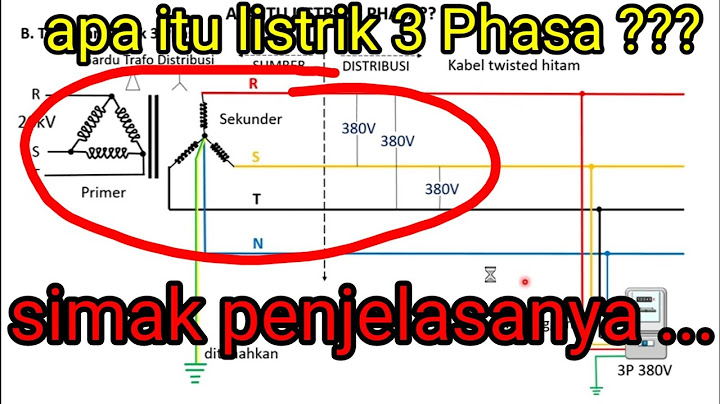You’ve packed the car, gassed up, researched bars and eateries, and you’re ready for a stress-free weekend in your Airbnb. Unfortunately, your home or apartment for the weekend may not be as private as you think. There have been a number of complaints by Airbnb guests—across the world— about hidden cameras actively recording guests. Show Airbnb’s policy about this controversial issue is clear: recording with hidden spy cameras is prohibited. But with over 6 million Airbnb listings worldwide, regulating this is impossible. To make matters worse, 13.45% of safety-related issues are caused by unsafe or unpleasant conditions like hidden recording devices, according to iPropertyManagement. There are several simple ways that anyone can locate rogue cameras without having James Bond on your side. 1. Do a Sweep for Strange, Out-of-Place ElectronicsBelieve it or not, many wireless cameras are simply hiding in plain sight. After settling in, take a thorough look around the entire apartment or house—bathrooms and bedrooms included. Keep your eyes peeled for objects that are especially bulky, and stand out in a particular room. For example, an off-color wall charger should catch your eye. Your host probably wouldn’t leave a handbag astray on the bedroom floor, either. Spy cameras can also be disguised as a number of other commonplace household objects, including:
If a charger or alarm clock is pointing directly at a shower or bed, then be sure to investigate. Covert cameras are more than likely pointing where people would be standing– the angle should be the biggest tell. 2. Detecting Spy Cameras With a FlashlightShining your flashlight through every room in your Airbnb is another great way to detect covert cameras. Surveillance equipment companies primarily manufacture cameras with a similar plastic material that resembles normal household items. However, to preserve the quality of the recording or stream, the lens itself must be made of glass. Glass surfaces, including wireless camera lenses, are reflective. If there are any spy cameras in the unit, the glass lens should reflect the light back. There are two important things to remember when you check for hidden nanny cameras with your flashlight. First, be sure to turn off the lights so that you can see any minor reflection or detect infrared night vision lights. Second, move slowly and be thorough— spy cameras are meant to stay hidden, and can be quite small. 3. Check for Hidden Devices with Wi-Fi Sniffing AppsWhile cutting-edge cameras are designed to blend right in, modern technology has also made it possible to find hidden surveillance cameras without disrupting your Netflix session. Wi-Fi sniffing apps can help you find recording devices in your Airbnb that are connected to the local network. In order for the host to watch guests on a live stream, wireless cameras must be connected to the internet. If you’re willing to take the extra step, these advanced connectivity features are a dead giveaway. Once you connect to your host’s Wi-Fi network, you can use a Wi-Fi sniffing app to determine if there are other connected devices. Many of these apps, like Fing, are smartphone-compatible. Scanning the new network to find other devices, including spy cameras, is as simple as the click of a button. However, keep in mind that there are bound to be a few non-recording devices connected, too. Smart TVs, for example, require an internet connection to access streaming apps like Netflix. Fing allows you to dig even deeper by providing the MAC address of the device. Once you find another device, enter the MAC address on MacVendorLokup.com. This helpful website will help you identify the objects, and if necessary, take the next steps. 4. RF Hidden Camera DetectorFing works wonders in finding hidden camera devices connected to the primary network. The trouble here? Rogue Airbnb hosts may have connected their spy cameras to a second private network for precisely this reason. In these situations, RF (radio frequency) detectors can come in handy. Wireless devices operate via radio frequencies, so RF detectors can easily locate hidden camera devices. These handheld devices are a foolproof way to know, with absolute confidence, if there are covert cameras in the unit. They’re easy to operate and alert you of signals by beeping. Like metal detectors, RF detectors beep increasingly louder and more often as you approach your target. While this method is slightly more expensive, it’s the only way to know with certainty that you’ve found the culprit. The investment is well worth it for wary travelers, especially those planning to visit another Airbnb soon. We sell several RF detectors that are designed to help people locate recording devices, without requiring strong technical expertise. What to Do After Finding Hidden Airbnb Cameras So, you found the camera. What’s your next move? That all depends on how you want to proceed. If you feel compelled to do so, then contact the local authorities to report the incident. You should also alert Airbnb about this violation– and prevent others from walking into the same situation. As we mentioned earlier, Airbnb’s policy expressly prevents hidden cameras and recording devices, so passing this information along helps other people remain safe.
Ayesha Rascoe speaks to Wirecutter privacy and security editor Thorin Klosowski about how to detect hidden cameras in vacation rentals and hotel rooms.
AYESHA RASCOE, HOST: Summer travel season is in full swing, which means hotel, Airbnb and Vrbo reservations are picking up. And along with that, for some guests, there's concern - to paraphrase that old song - that somebody's watching them. Over the past few years, we've seen reports of Airbnb and Vrbo landlords posting private photos and information and unscrupulous hotel employees selling streams of what happens in hotel rooms. And we definitely don't want that. My goodness. But there are ways for travelers to protect themselves. And we're joined now by Thorin Klosowski, privacy and security editor at Wirecutter. Welcome. THORIN KLOSOWSKI: Hello. Thanks for having me. RASCOE: So first - and we should be clear that the people who do this, whether it's at Airbnb or a hotel - they are going against policy, right? KLOSOWSKI: Correct, yeah. Airbnb, like, specifically states that hosts need to disclose any cameras on the property, and those cameras should not be in any private areas, like a bathroom or a bedroom. RASCOE: And hotels obviously have the same sorts of policies. KLOSOWSKI: Yep. RASCOE: So let's start with you're going into a home - a Vrbo, an Airbnb situation. How do you know where there may be recording devices? KLOSOWSKI: The first thing that I would personally do is grab a flashlight, go to the kind of private areas that I would not expect a camera to be and flash that around to see if I see a reflection of what a camera lens would look like, which is kind of a blue reflection. You can also turn off all of the lights and you will see an IR signal. It's kind of like a red dot that glows. And if that's recording, like, a night vision, you would also see that. RASCOE: And are there apps out there now that are intended to help people find these hidden cameras? KLOSOWSKI: There are, and I don't love them. RASCOE: OK. KLOSOWSKI: I actually find the flashlight to be easier and a little bit better at finding things. A lot of the apps kind of have their own bad behaviors of often requiring a subscription fee or something like that that kind of feels a little icky. But they also - like, if you use them to scan for, say, a camera, it will kind of pick up any reflection. So glass or a camera would kind of show up the same thing. And then you end up just kind of walking close to it and inspecting it anyway. RASCOE: Have you ever found, like, a camera or anything where you were staying? KLOSOWSKI: No, I haven't. I have done the scans before. And, funnily enough, one of the reasons I don't trust the apps is because it wasn't even picking up the Ring camera, which was clearly on the door. And it can be useful, to be clear, but it also tends to be a little bit more technical, a little bit more complicated. You might not really know what you're looking at. And you might either be scared for nothing or be totally missing something important. RASCOE: So in addition to, like, the flashlight, is there anything else that you can do? KLOSOWSKI: Yeah, I think you can cover things up that maybe do look a little weird or you're unsure about. You can unplug the Wi-Fi router and, if you do so, it might alert the host. And you can also just kind of unplug anything that looks kind of fishy, whether that's an alarm clock or just a USB plug that seems random in the wall. RASCOE: And, I mean - so how worried should guests be about this? Like, you know, like, is this a really big issue? KLOSOWSKI: I haven't been able to find, like, a really great list of just how many times these get reported. And Airbnb does have policies in place, and they'd get picked up on the news enough that clearly, they've instituted rules. But I don't know how often they, you know, get reported. RASCOE: So renter beware. That's Thorin Klosowski, privacy and security editor at Wirecutter. Thank you so much for speaking with us today. KLOSOWSKI: Yeah, thanks for having me. (SOUMNDBITE OF HUSKY RESCUE'S "FAST LANE") Copyright © 2022 NPR. All rights reserved. Visit our website terms of use and permissions pages at www.npr.org for further information. NPR transcripts are created on a rush deadline by an NPR contractor. This text may not be in its final form and may be updated or revised in the future. Accuracy and availability may vary. The authoritative record of NPR’s programming is the audio record. |

Pos Terkait
Periklanan
BERITA TERKINI
Toplist Popular
#1
#2
#3
#4
#6
#8
#9
Periklanan
Terpopuler
Periklanan
Tentang Kami
Dukungan

Copyright © 2024 adaberapa Inc.


















